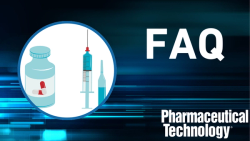
OR WAIT null SECS
- About Us
- Advertise
- Contact Us
- Editorial Info
- Editorial Advisory Board
- Do Not Sell My Personal Information
- Privacy Policy
- Terms and Conditions
© 2026 MJH Life Sciences™ , Pharmaceutical Technology - Pharma News and Development Insights. All rights reserved.
Pfizer and Nycomed sue generic firms
Teva and Sun Pharmaceuticals? motion to overturn a verdict issued against them in April 2010 for patent infringement has been denied by a US court, leaving the companies at the mercy of pharma giants Pfizer and Nycomed, who have said they will "vigorously" pursue damage claims.
Teva and Sun Pharmaceuticals’ motion to overturn a verdict issued against them in April 2010 for patent infringement has been denied by a US court, leaving the companies at the mercy of pharma giants Pfizer and Nycomed, who have said they will “vigorously” pursue damage claims.
Both Teva and Sun launched generic versions of Protonix, a proton pump inhibitor, in late 2007 and early 2008, respectively — approximately 3 years before the original patent (including pediatric exclusivity) had expired. These so called ‘at-risk’ launches can boost a generic company’s earnings, particularly as many other generic firms will not take the risk of launching so early. However, the penalties for losing any subsequent litigation can be huge.
And losing is what has just happened to Teva and Sun. The detailed opinion of the court was not available at the time of going to press; however, various third-party sources have estimated that Teva and Sun could end up paying anywhere between $250 million–2 billion. According to a statement from Nycomed, Protonix sales reached $1.9 billion in 2007, but have suffered “considerably” since the launch of Teva and Sun’s generics.
In press statements, Teva and Sun have said they both believe the patent is “invalid and unenforceable” and will “pursue all available legal remedies including appeals”.
The court’s verdict is also not an entire victory for Pfizer and Nycomed. The companies had requested that Teva and Sun be stopped from their selling generic versions of Protonix until 20 January 2011 (the day after the end of pediatric exclusivity), but this was denied by the court as both generic firms have patent defenses in place. As such, both generic firms can continue to sell their products prior to 20 January 2011.
Nycomed has said it will “seek a rapid adjudication of Teva’s and Sun’s remaining miscellaneous unenforceability defenses which were, together with Nycomed’s damage claims, bifurcated from the first trial”.



